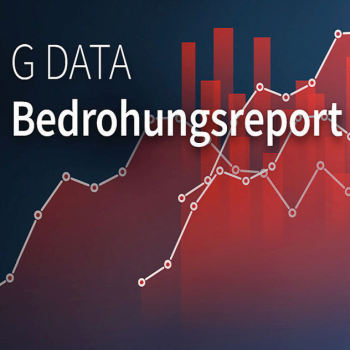
The security experts at G DATA CyberDefense identified around 50 million different malware programs in 2022. This is twice as many as in 2021, according to the new threat report from G DATA CyberDefense. Attackers rely on phishing and malvertising.
In order to spread malicious code, attackers increasingly rely on malvertising, i.e. malicious advertising, and search engine poisoning in addition to phishing. In addition, the number of defended against cyber attacks rose sharply again in the fourth quarter of 2022.
In 2022, cybercriminals published almost 135.000 new variants of their malicious software in one day - more than 93 attack attempts per minute. The criminals' calculus: Antivirus solutions cannot keep up with the high speed and do not recognize the new malware variant, so that they can penetrate the network unhindered. Security analysts identified more than 2022 million different malicious programs in 49 – an increase of 107 percent. Compared to 2021, the number has more than doubled.
Corporate attacks are declining slightly
Current studies by G DATA CyberDefense show that the number of cyber attacks averted increased by more than 15 percent from the third to the fourth quarter. The cybercriminals have increasingly targeted private users. While the number of blocked attacks on companies has fallen by more than 11 percent in three months
Malware Top 10: Return of the Trojans
Four malware families from last year's ranking can be found in the top 10 for 2022. Another change: While remote access Trojans in particular have dominated the list in recent years, the picture is now much more diverse. With Berbew, Urelas and Vilsel, there are three Trojans in the ranking. This continues the trend of connecting different malware to attack chains in order to maximize profit.
The top 10 malware at a glance:
| Tour Locations | Name | Percentage | Art |
| 1 (7) | Shade | 15,9 | Ransomware |
| 1 (8) | BlackShades | 15,9 | Remote access trojan |
| 3 (-) | Urelas | 11,4 | Trojans |
| 3 (-) | Berbew | 11,4 | Trojans |
| 5 (2) | Emotet | 9,1 | Malware distributor |
| 6 (-) | Vilsel | 7,1 | Trojans |
| 7 (-) | DC RAT | 6,9 | Remote access trojan |
| 8 (-) | buterate | 3,6 | Remote access trojan |
| 9 (-) | prepscram | 3,0 | Software bundlers |
| 10 (1) | Dridex | 2,3 | Information stealers |
Previous year's placement in brackets
Many attack paths lead to the goal
Cyber criminals use different ways to infiltrate networks and computers. In addition to classic phishing emails, search engine poisoning and malvertising are currently among the most frequently used attack vectors. This is how phishing mails have been working for more than 30 years - although private individuals and companies have been using mail security and spam filters for just as long. One reason for this: Phishing emails have improved in quality. In addition, the danger of targeted attacks has increased.
Even though attacks on companies have recently decreased, cybercriminals will continue to attack companies. They also act under economic aspects and try to achieve maximum profit with little effort. So if companies keep their IT security up to date, patch their systems and increase the security awareness of their employees, attackers also have to invest more in order to reach their goal. And when the effort outweighs the rewards, cybercriminals look for a new victim whose actions are easier to defeat.
More at GData.de
About G Data With comprehensive cyber defense services, the inventor of the anti-virus enables companies to defend themselves against cybercrime. Over 500 employees ensure the digital security of companies and users. Made in Germany: With over 30 years of expertise in malware analysis, G DATA conducts research and software development exclusively in Germany. The highest standards of data protection are paramount. In 2011, G DATA issued a “no backdoor” guarantee with the “IT Security Made in Germany” seal of trust from TeleTrust eV. G DATA offers a portfolio from anti-virus and endpoint protection to penetration tests and incident response to forensic analyzes, security status checks and cyber awareness training to defend companies effectively. New technologies such as DeepRay use artificial intelligence to protect against malware. Service and support are part of the G DATA campus in Bochum. G DATA solutions are available in 90 countries and have received numerous awards.
